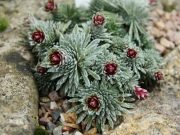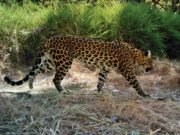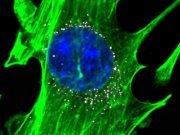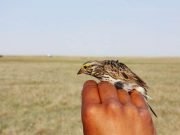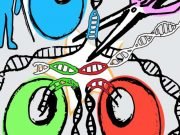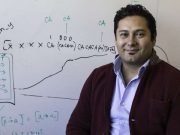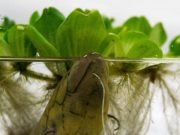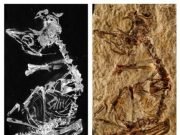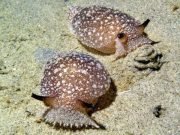Pain’s origins differ in males and females
New research from The University of Texas at Dallas supports the growing consensus that pain begins differently for men and women at the cellular...
Rare mineral discovered in plants for first time
Scientists at Sainsbury Laboratory Cambridge University have found that the mineral vaterite, a form (polymorph) of calcium carbonate, is a dominant component of the...
Cambodia’s last leopards on brink of extinction
A new study has confirmed that the world's last breeding population of leopards in Cambodia is at immediate risk of extinction, having declined an...
Comparison shows value of DNA barcoding in selecting nanoparticles
The first direct comparison of in vitro and in vivo screening techniques for identifying nanoparticles that may be used to transport therapeutic molecules into...
Landmark study reports on new layer of complexity in songbird communication
Some good news: songbirds living near oil and gas fields in Canada's prairies are indeed able to understand each other over the clamour of...
Ancient Nubia (present-day Sudan): In the footsteps of the Napata and Meroe kingdoms
The archaeological site of Sedeinga is located in Sudan, a hundred kilometers to the north of the third cataract of the Nile, on the...
Gene editing method produces perfect pluripotent stem cell twins
Researchers led by Dr. Knut Woltjen report a new gene editing method that can modify a single DNA base in the human genome with...
Science of Science authors hope to spark conversations about the scientific enterprise
A group of interdisciplinary scientists have put the practice of science itself under a microscope to begin quantifying the fundamental drivers of scientific discovery...
Mammals share mechanisms controlling the heart with a 400 million-year-old fish
Primitive air-breathing fish, whose direct ancestors first appeared around 400 million years ago, show mechanisms controlling the heart which were previously considered to be...
127-million-year-old baby bird fossil sheds light on avian evolution
The tiny fossil of a prehistoric baby bird is helping scientists understand how early avians came into the world in the Age of Dinosaurs.
The...
Virtual predator is ‘self-aware’, behaves like living counterpart
Scientists report in the journal eNeuro that they've built an artificially intelligent ocean predator that behaves a lot like the original flesh-and-blood organism on which it...



